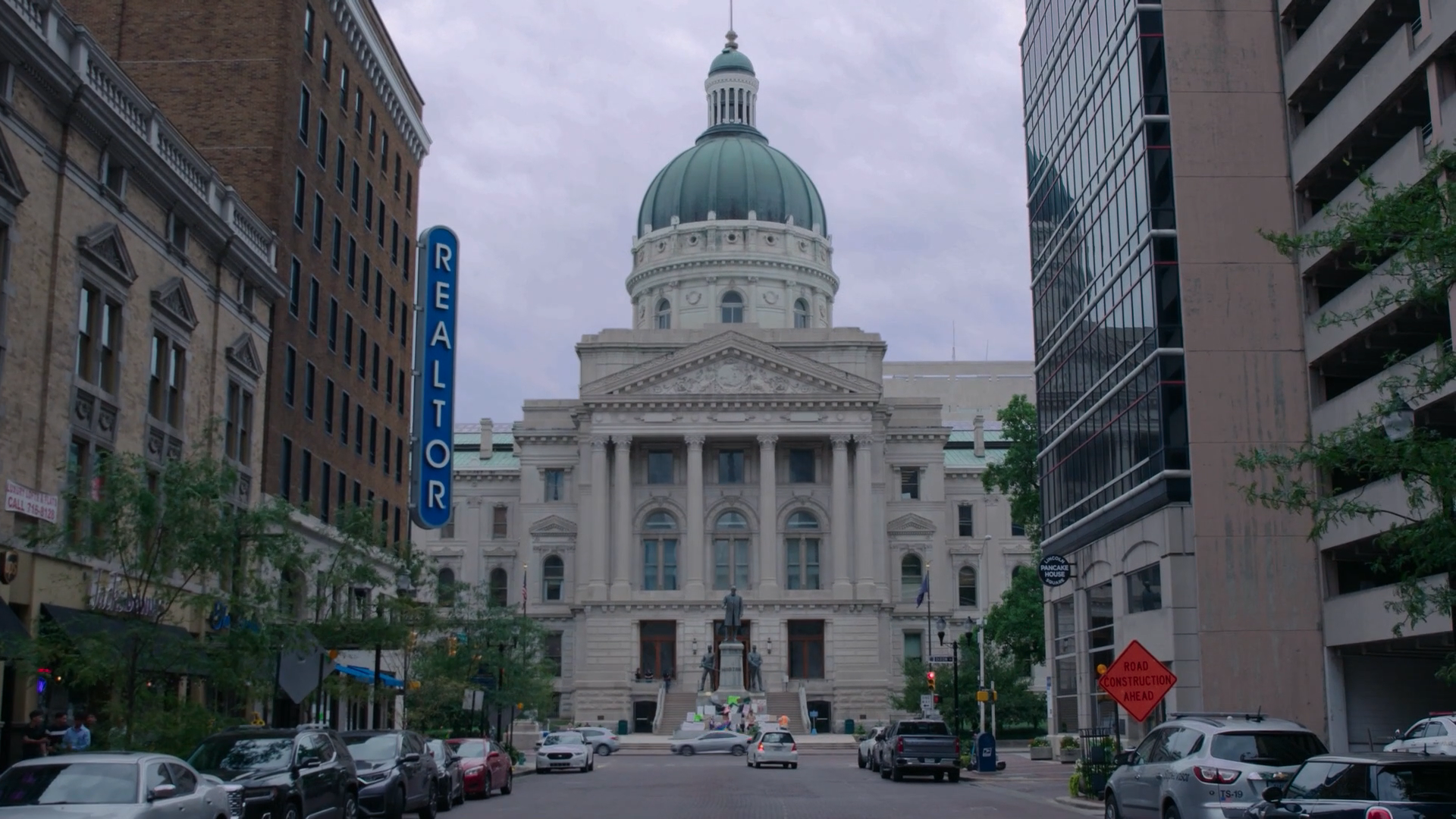'Chef Steven': Serving a Community with Food and Dignity
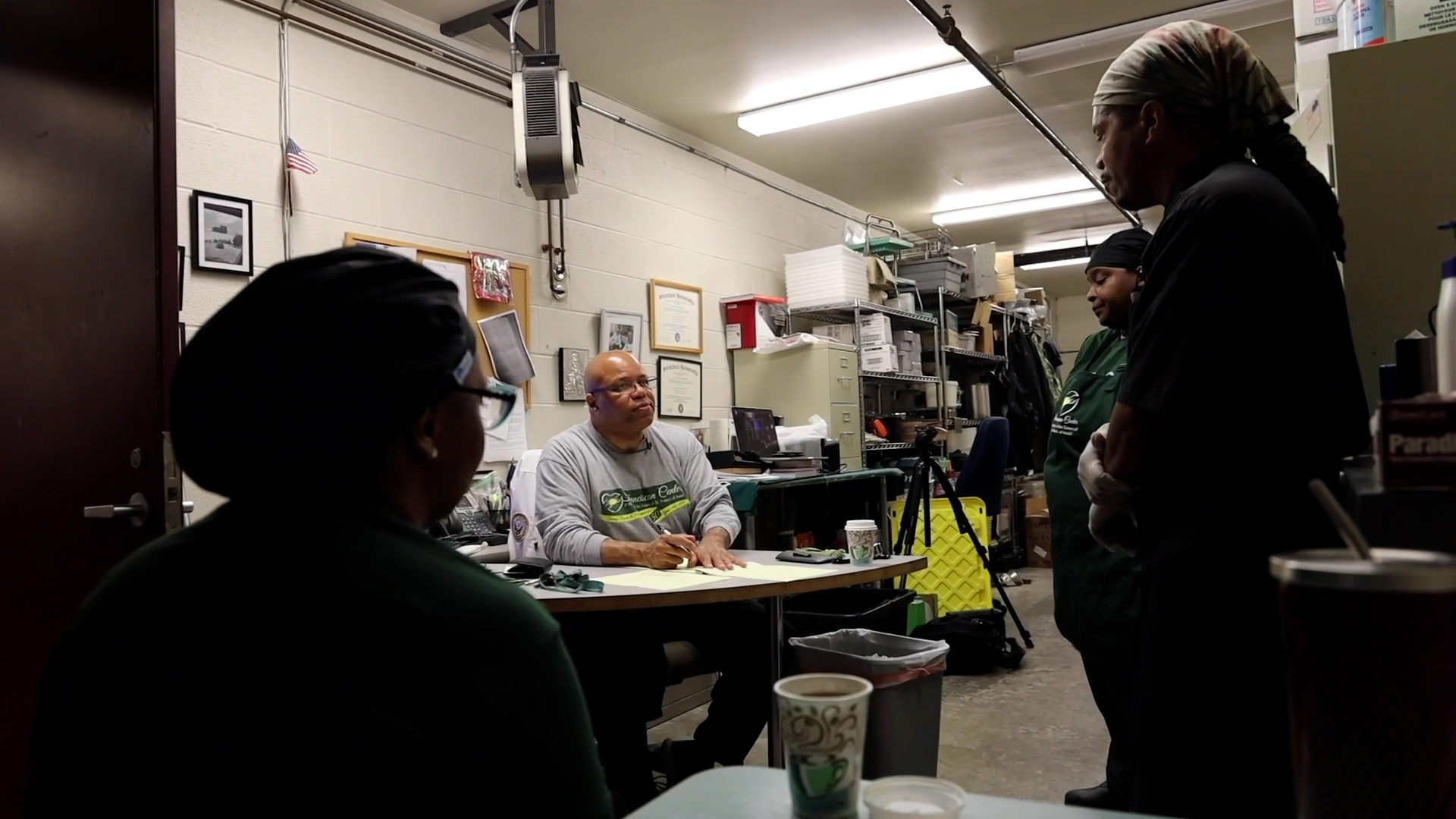
In “Chef Steven,” filmmaker Amy Oden highlights the altruistic work carried out by Chef Steven Allbright and his team at the Franciscan Center of Baltimore, a place that serves as a beacon of light for the community. In spite of the COVID-19 pandemic, Allbright and his team work around the clock to help feed and support people needing assistance.
Amy Oden: When we first reached out to you from MPT, you'd already been working with Carlton to capture some of your daily reality at the center, which was incredibly helpful to have access to, since the pandemic limited our ability to film. How did you feel when Carlton had first approached you about filming? What was that conversation like, and how did that experience develop?
Steven Allbright: Carlton and I had been friends for a few years. Our Executive Director Jeff Griffin, had thought it would be good that we do some filming at the center for our food initiatives, prior to the pandemic. We consulted with Carlton and asked if he would be interested as he had filmed here during the 50th anniversary of the Franciscan Center in 2018. He agreed the week prior to the pandemic and he was going to film the St. Patrick’s Day event we planned. Once we got word that we had to shut down inside operations, we decided to stay open to feed our community neighbors in need.
My second thought was informed by my faith: I believe the Holy Spirit will always connect you with the right people at the right time. This was the right time: my colleagues at the Franciscan Center and I had decided to press on through the pandemic so our neighbors would still get fed, and this was a story that was worth recording as it was happening.
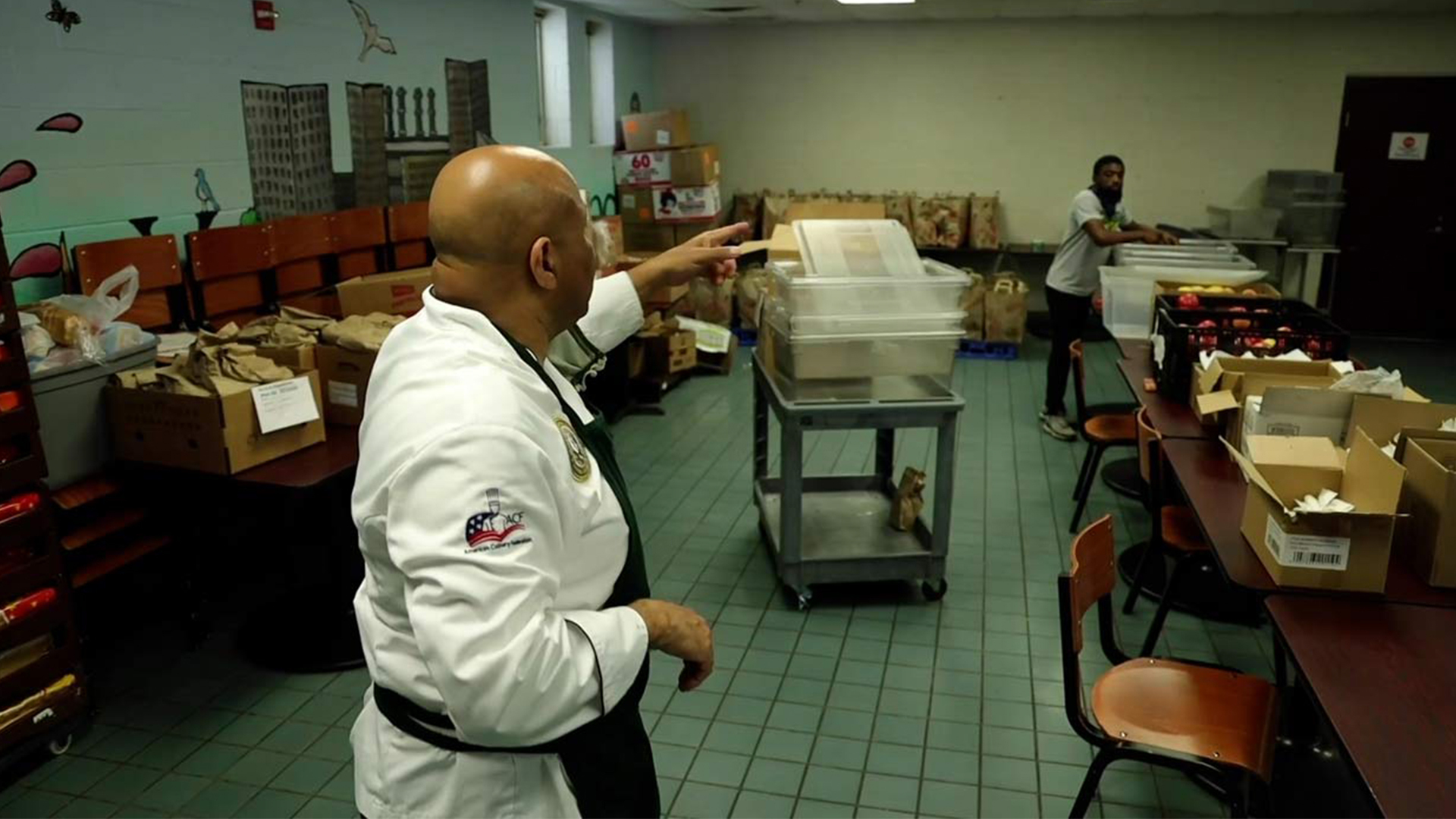
Amy: One of the main takeaways for me, as I looked through the footage, was the dedication of you and your crew to the work. Can you talk about what keeps you motivated to work these crazy hours?
Steven: No question, the hours have been crazy at times. But I think for all of us, the motivation comes from knowing we’re feeding people in need, and we’re feeding them well. There’s a lot of pride behind that.
And if you look at our kitchen team, our staff, you’ll find that just about every one of them has a story about times when they struggled; times when it wasn’t clear where the next meal was coming from. So, to go from those circumstances to coming in every day to a job where you’re making great meals from scratch to help the next person along—that’s definitely a motivator.
Amy: What do you hope people take from the film?
Steven: What do I hope people take away from the film? Just that: hope. You’ve probably noticed that hope’s something that can be in short supply these days, especially when you’re talking about life in the city of Baltimore. And I get that: we see the problems people face up close and personal every day. But we also see the victories, small as they may seem. Day by day, we’re helping the people who come to us at the Franciscan Center to take those steps necessary to get to – or get back to – self-sufficiency.
Amy: How have things progressed at the center since our interview?
Steven: The biggest thing that’s happened since our interview is that we graduated the first class of the Dignity Plates Training Academy and started our second. The first class (five students) impressed me with their commitment. We explained our expectations, and these folks more than met them. We’re all looking forward to helping them get going with their culinary careers. And now the next class is doubled in size — 10 people, including some from the Franciscan Center staff. They are more than ready to go.
We’re also preparing to renovate the Center’s former pantry into a “classroom” kitchen where future classes will be taught. Right now, we are partnering with City Seeds in east Baltimore to use their kitchen as a teaching space for our students.
Finally, Jeff Griffin and I completed our studies with the 2020-21 cohort of the Johns Hopkins Social Innovation Lab. We were honored to be selected from a very competitive field of applicants and we’ve learned a tremendous amount that we’re now applying to our efforts to launch Elevated Soups. This is a for-profit venture that grew out of the incredible partnerships we’ve forged with nearby urban and rural farms, which we hope will help fund programs at the Center, and build awareness of what we’re trying to do.
Amy: What's next for you at the center?
Steven: What’s next? Renewing and reintegrating. One data point that struck me recently. Since our facility was last renovated in the late 1990s, we’ve served around 3.5 million meals out of our kitchen. Ten percent of those meals – 350,000-plus – were served just in the last year. And we’ve taken on delivering meals to sites around the city, started the Dignity Plates Training Academy, and are working to launch Elevated Soups and other social enterprises.
We’ve got a hard-working building but it’s getting worn out! Also, we want to become more a part of the exciting things happening in our neighborhood, Old Goucher. New restaurants are moving in and, having weathered the pandemic lockdowns, they’re looking to grow. Meanwhile, the existing mental health, behavioral health, and addiction treatment providers in the neighborhood are seeing increased demand. The Franciscan Center sort of fits in between the two categories, so we’d like to become a hub for our neighbors to talk to one another.
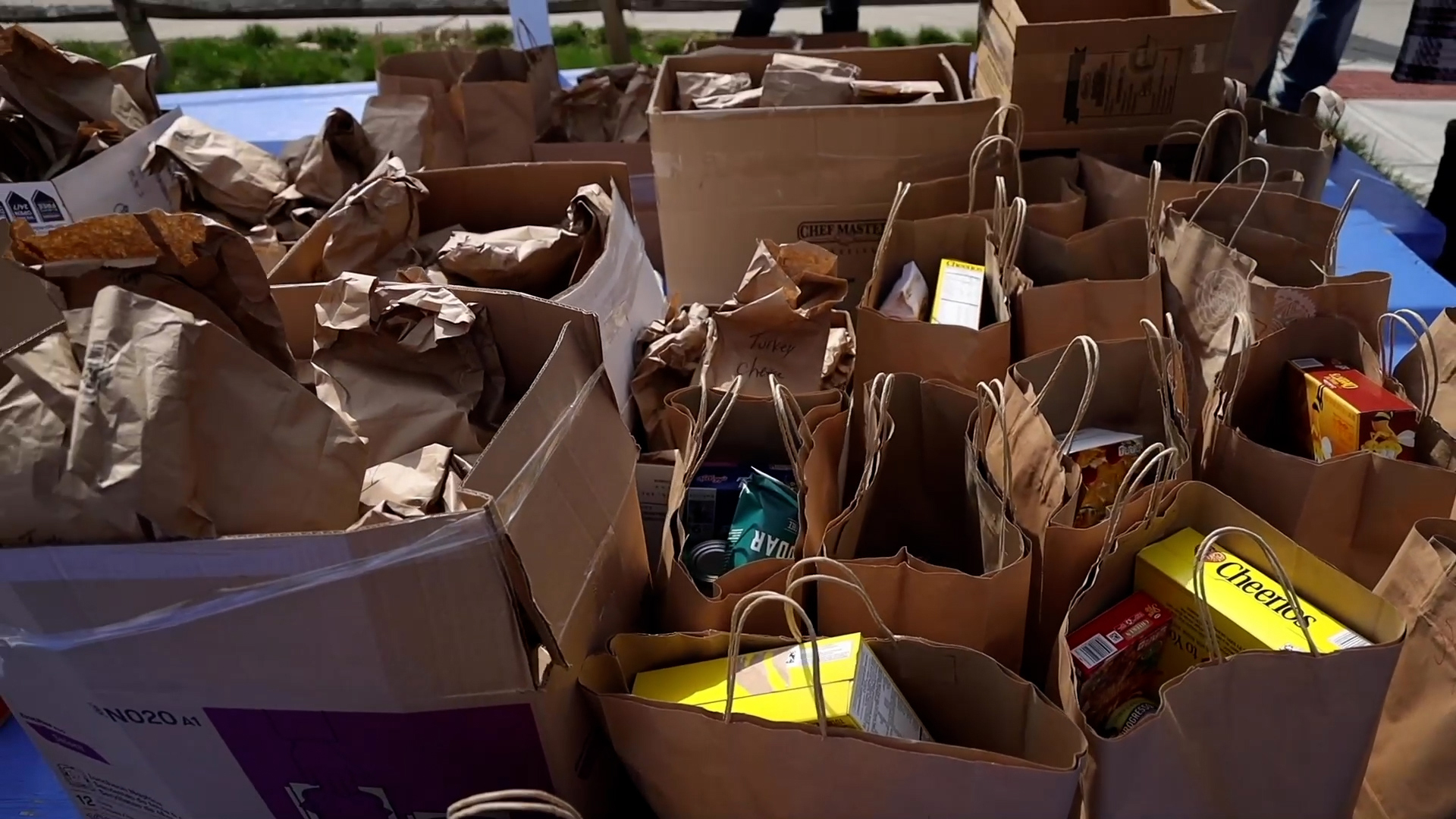
We’ve been planning a pretty thorough renovation and reconfiguration of our facility to meet these new responsibilities. For starters, we’ll be adding the “classroom” kitchen and turning our dining room into a multi-purpose community space. People will still eat there, but there will also be opportunities for “after hours” meetings and planning sessions and so forth.
Meanwhile, we’re creating a larger “client choice” pantry and a new computer access and education space. The trick is, we can’t stop doing what we’re doing while the contractors are here with us. Therefore, for the foreseeable future, the “next” will be continuing to serve our people while dodging dust and debris. The pandemic taught us to be nimble, so I think we’ll be fine.
"Chef Steven” will be streaming on PBS.org from July 12-23 as part of the PBS Short Film Festival 2021.
Chef Steven
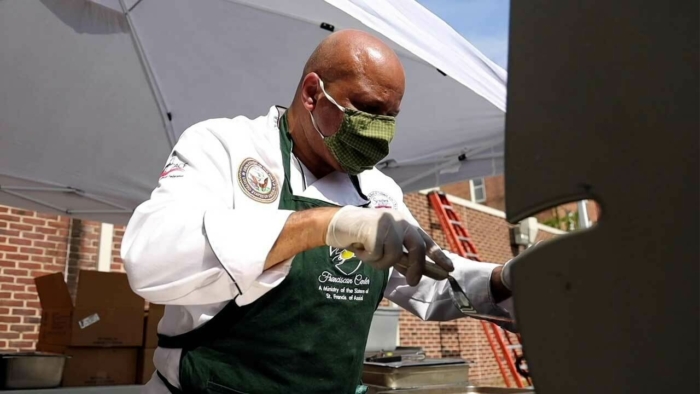
More like this
Visit the Behind The Lens Blog
